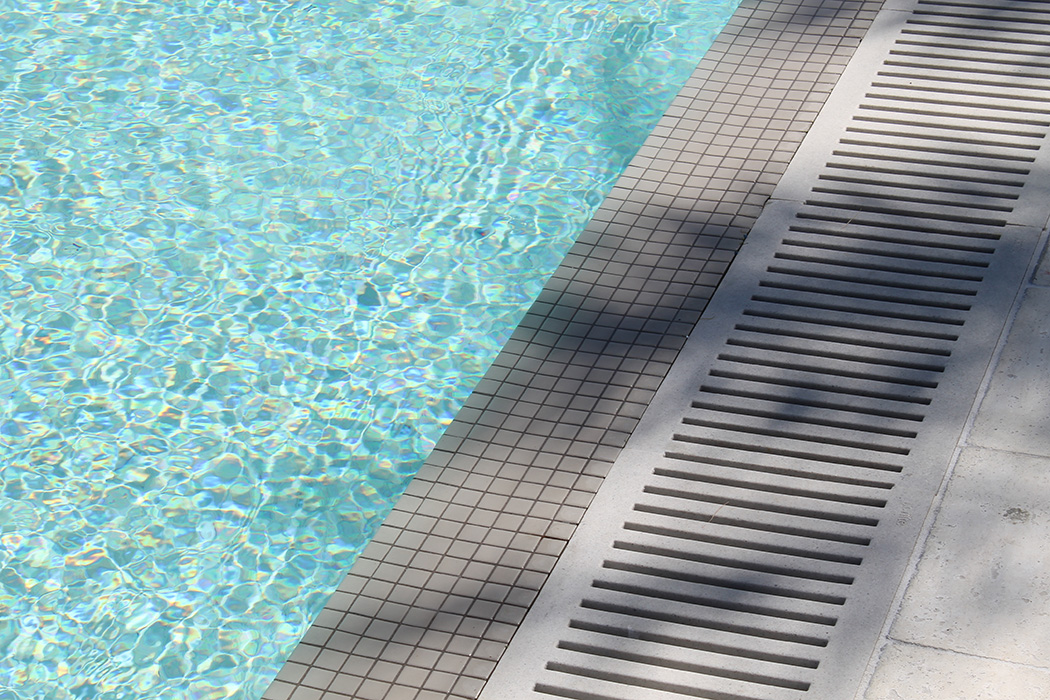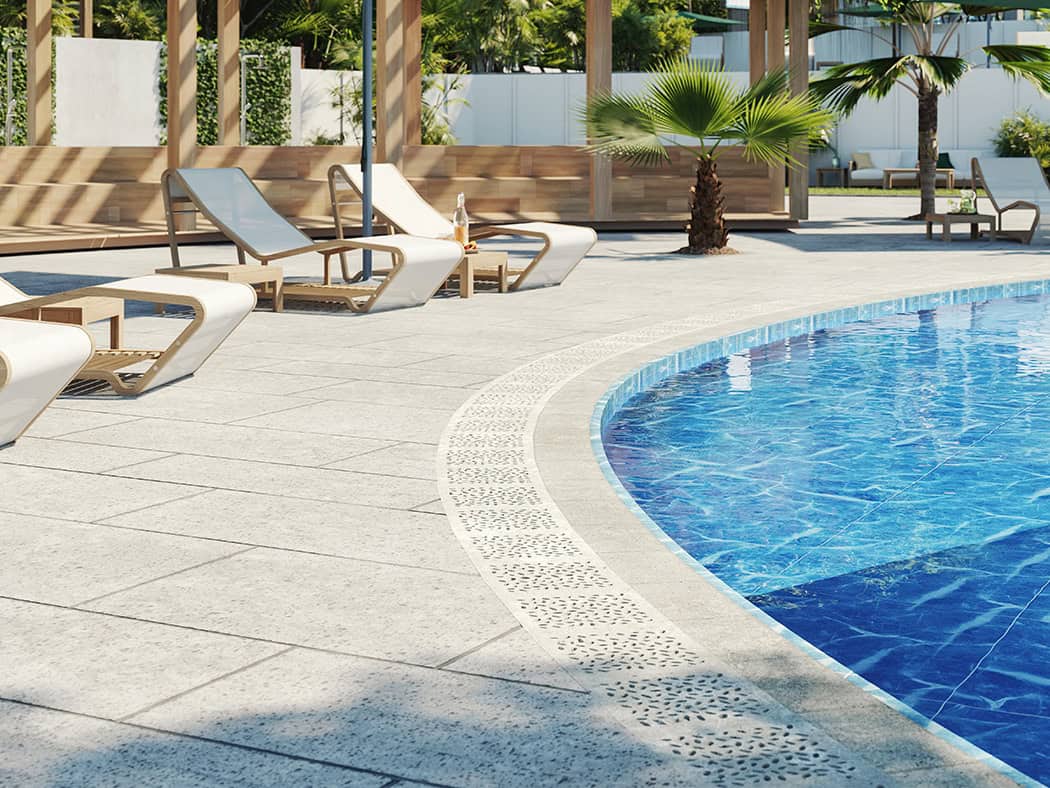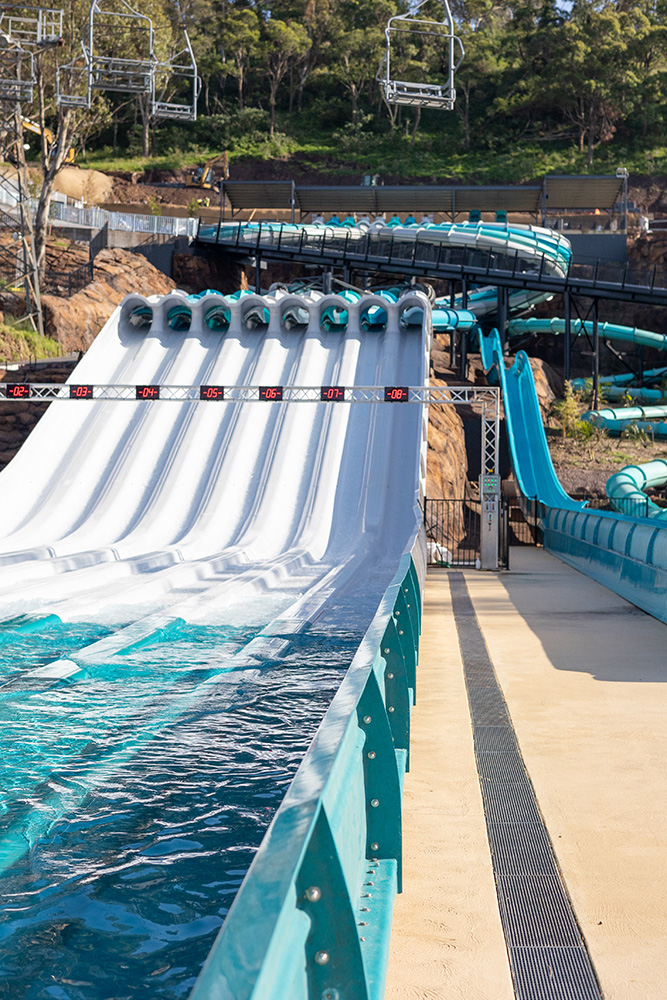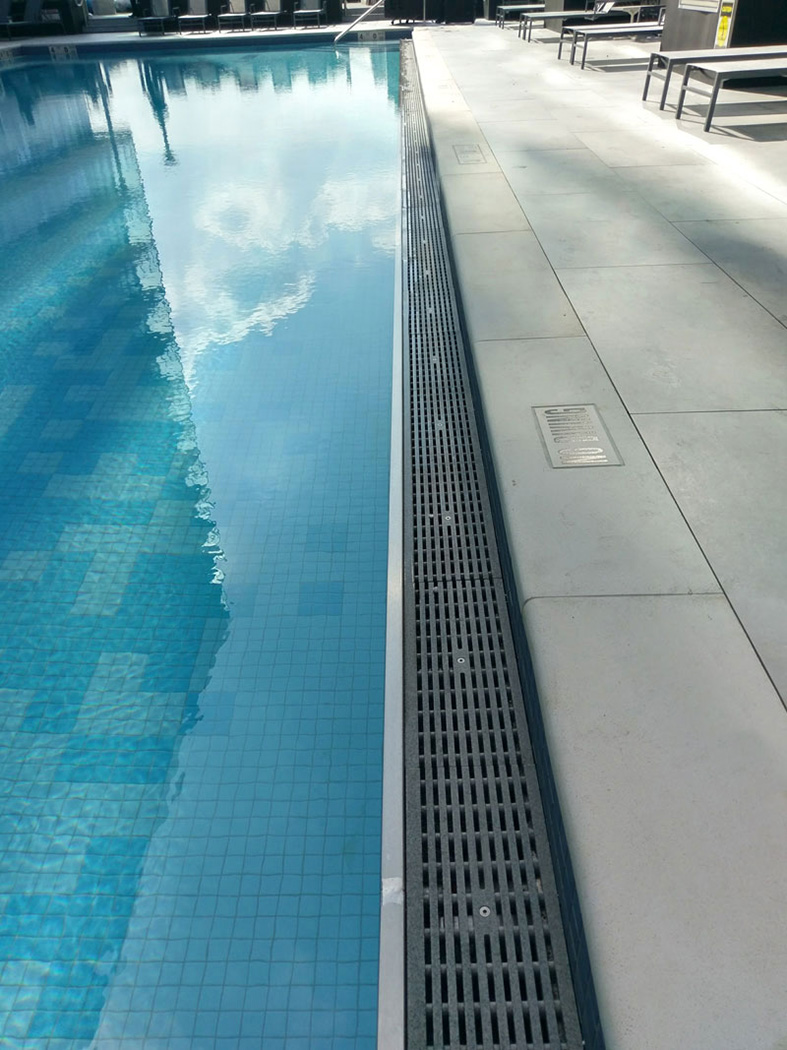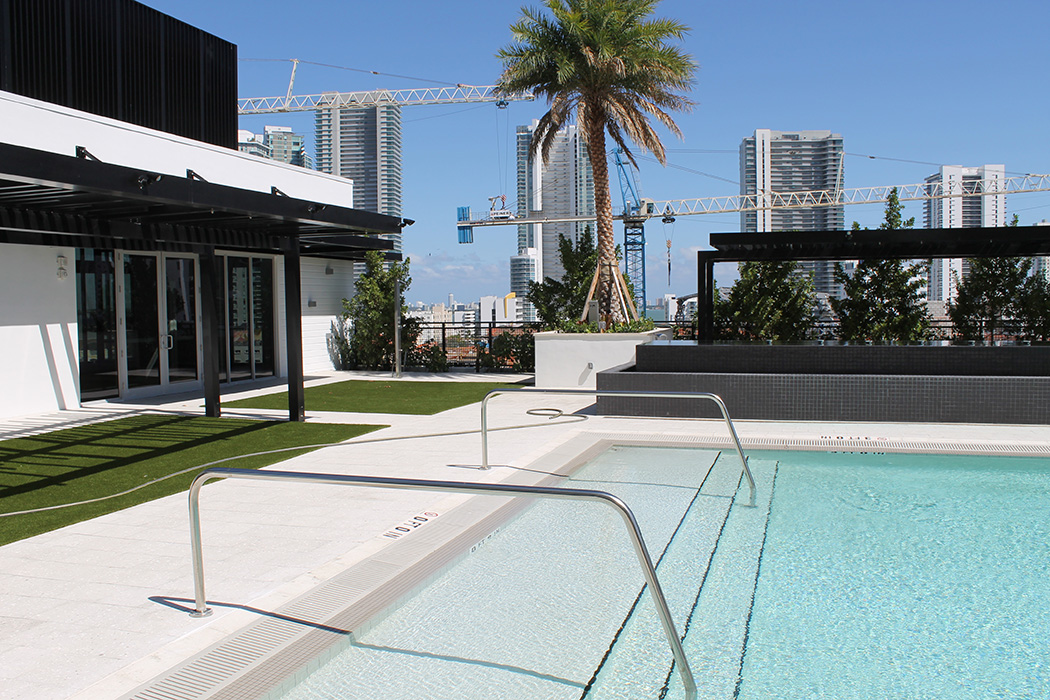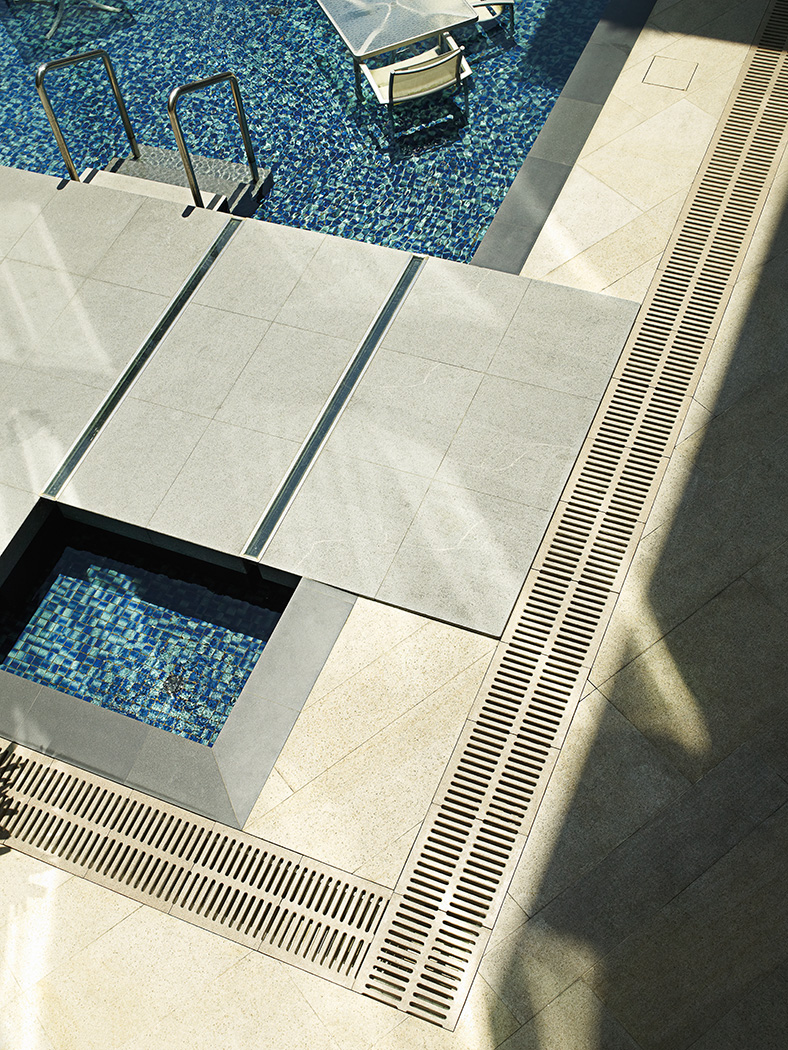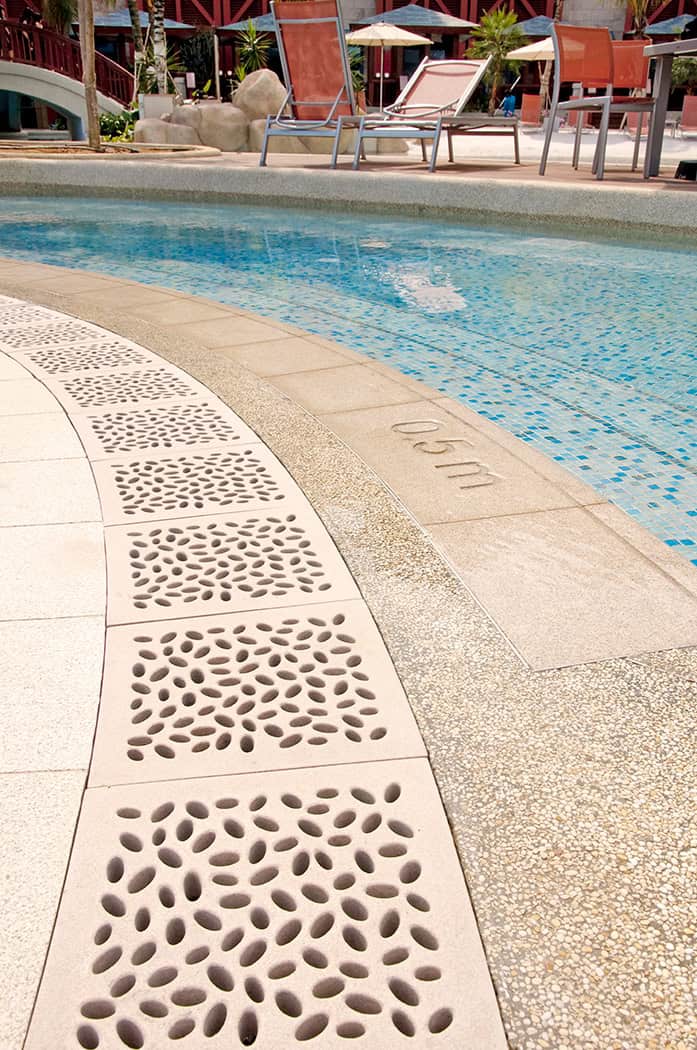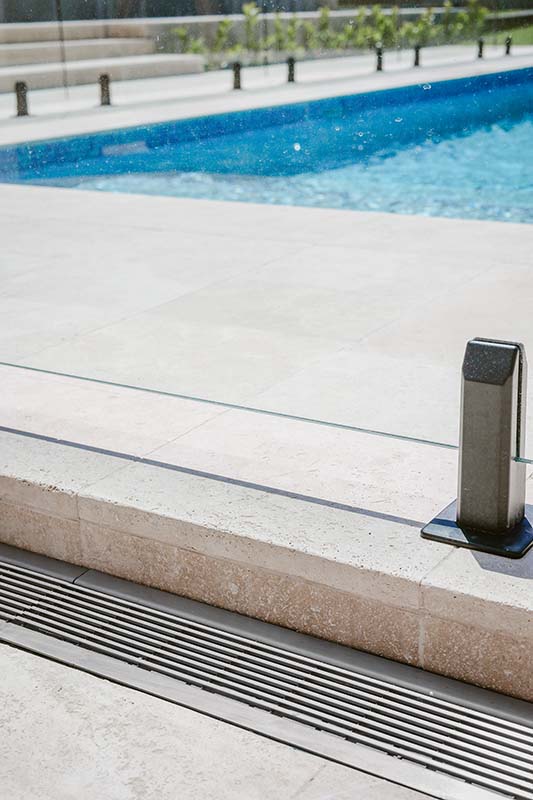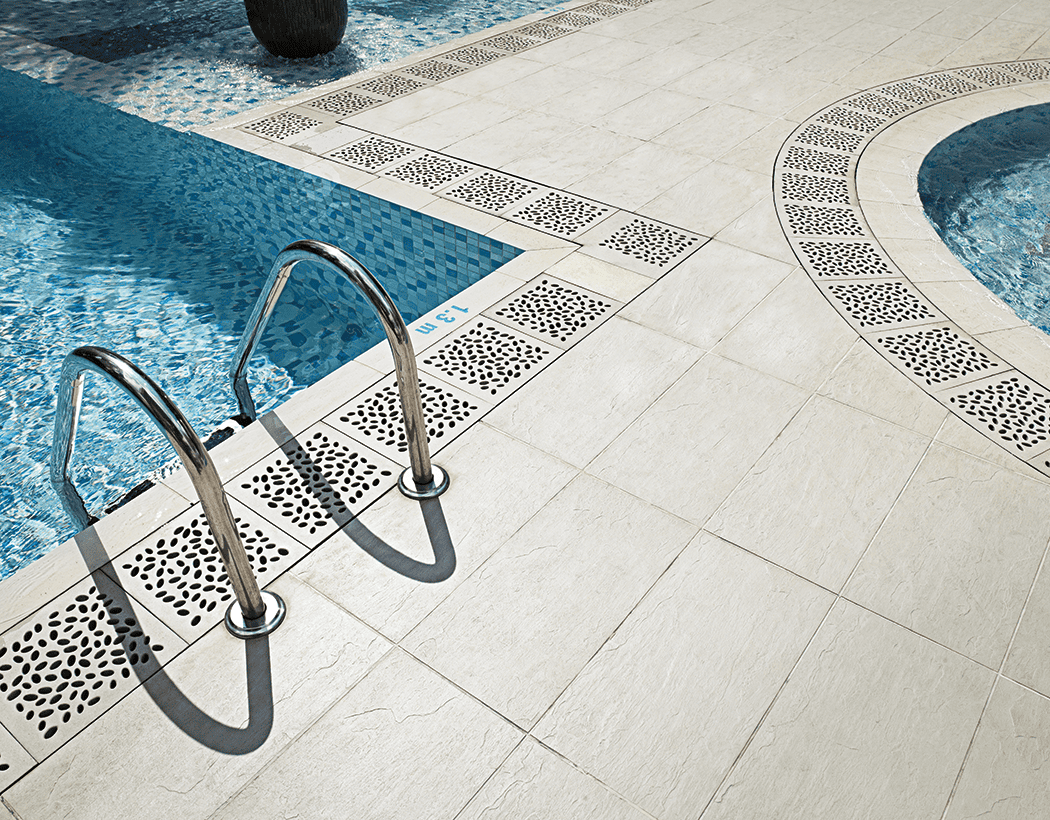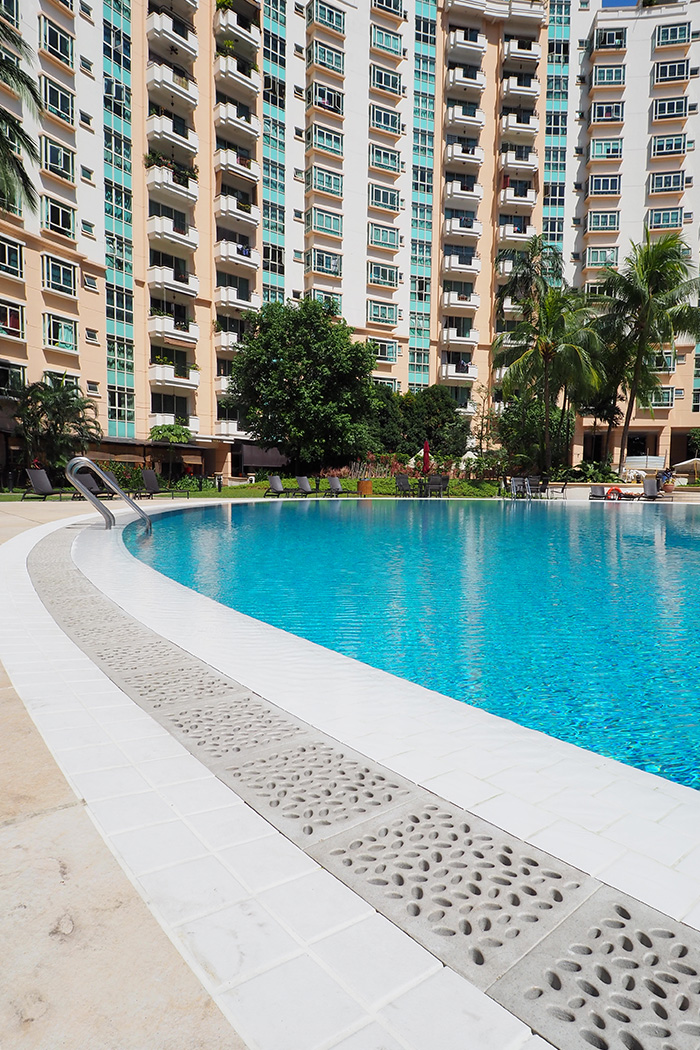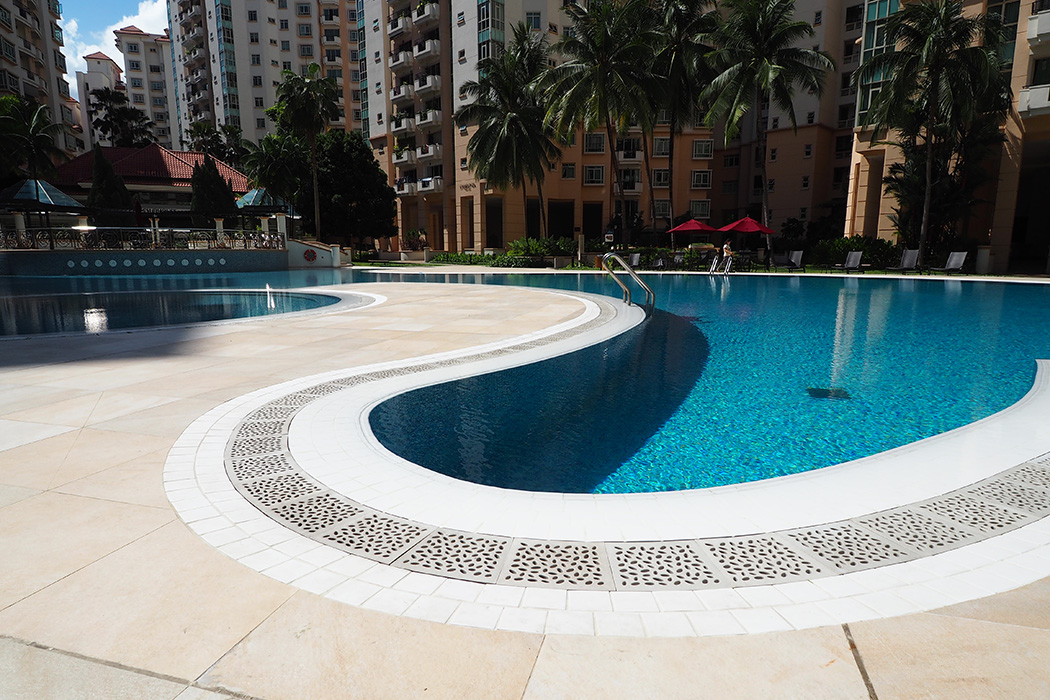Pool deck drainage is crucial for the safety of those who are using the pool areas, as well as to prevent contamination of the pool water from runoff. Slippery pool surrounds can lead to accidents and injuries as well as structural damage to the pool.
Effective pool drainage is important to keep your pool, the surrounding landscape and decking safe and long lasting.
Importance of Pool Deck Drainage
To keep the pool deck safe as well as your overall pool structure secure, drainage is an important factor to consider. Splashes from the pool can lead to slippery pools of water as well as rainfall. Prevention of outside water contaminating the pool and keeping visitors safe is critical.
Considerations for Pool Deck Drainage Solutions
Slope Considerations
The slope of the pool deck and drainage installation area has a large impact on the effectiveness of the chosen drainage system. Utilise gravity to assist you with your drainage system, calculating grading and sloping to direct water where you need it to go.
Sizing and Depth Restrictions
The area of your pool deck may have depth restrictions due to underground pumps or other structural elements.
Slope Direction
Ensure you direct water containing chemicals such as chlorine away from your landscaping.
Aesthetics
Consider different systems available to match existing aesthetics.
Types of Pool and Deck Drainage Systems
There are three main solutions for your pool area drainage. You may require more than one solution to ensure your drainage is efficient.
Slot Drains
A slot drain is a type of linear drainage system characterised by its narrow, discreet opening that runs along the surface. Unlike trench drains, slot drains do not have a grated cover; instead they have a slim, elongated slot that allows water to enter the drainage channel below. This design makes slot drains nearly invisible and less obtrusive. Slot drainage systems are a great option for projects requiring minimal aesthetics due to their discrete grate.
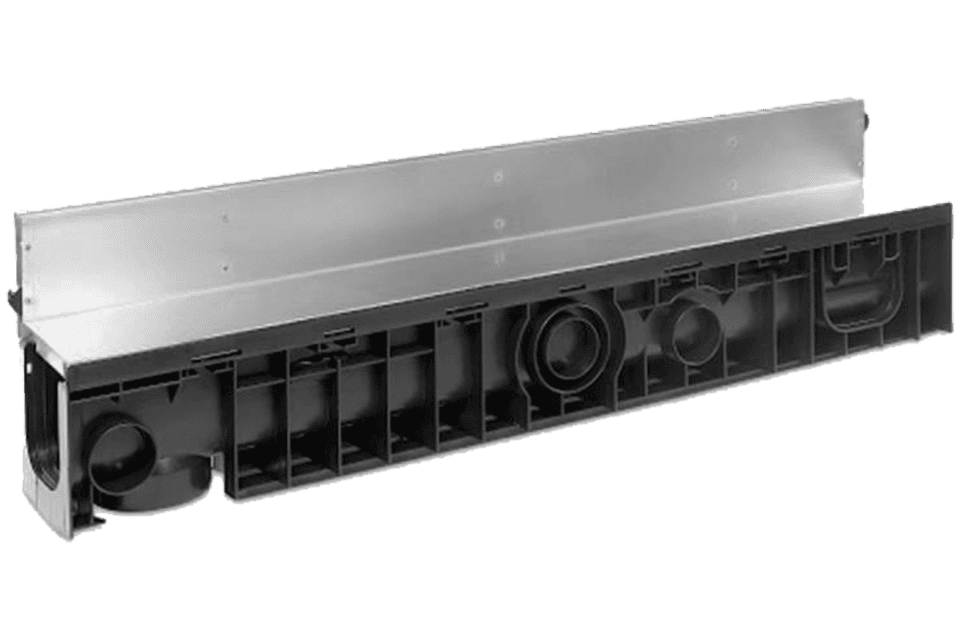
French Drains
A classic solution to handle runoff, this type of drainage system consists of a perforated pipe surrounded by gravel or rock, which is then covered with soil. The pipe acts as a conduit, collecting water and redirecting it away from your pool area.
Point/Spot Drains
Spot or point drains are installed directly on your pool deck, with surrounding grading assisting the flow of water toward the drain.
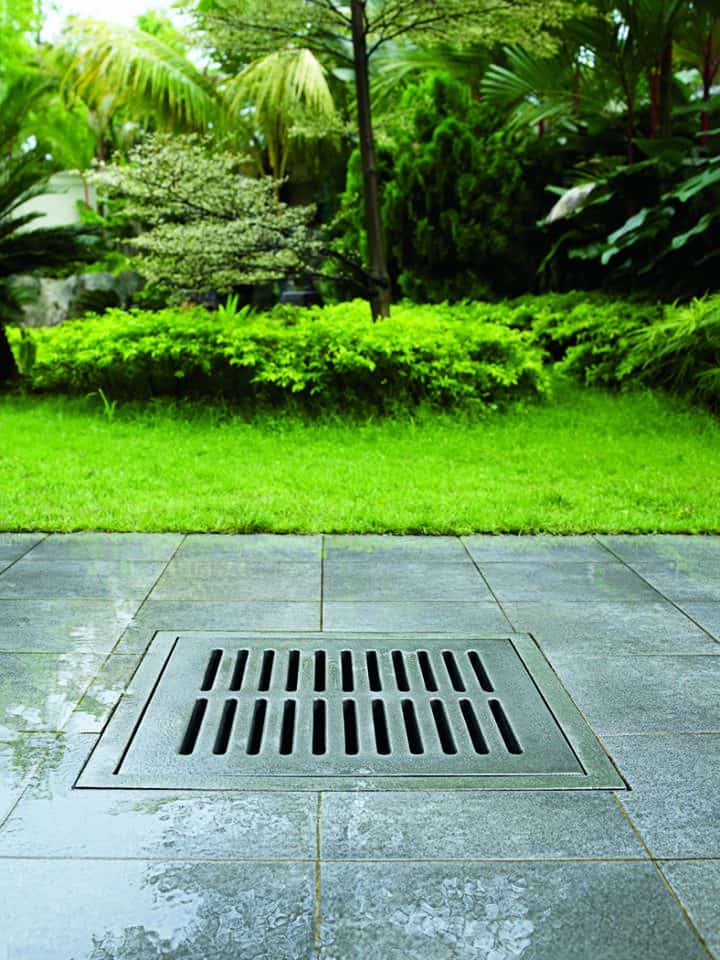
Grated Channel System
A trench drain, also known as a channel drain, is a linear drainage system designed to capture surface water and direct it away from a given area. This system typically consists of a long, narrow trench with a grated cover which allows water to flow into the trench whilst keeping debris out. The trench itself can be made out of various materials including polypropylene, concrete or stainless steel, whilst the grate have multiple safety or aesthetic features.
Signs of Drainage Issues
Standing or Pooling Water
An efficient drainage system will drain any standing water, so if there are signs of pooling it may be time for a new drainage system.
There may be other issues such as clogged drains or broken pipes, or grading problems.
Damaged Pipes or Grates
Damaged pipes and grates should be replaced as soon as possible, as this will always lead to further issues and become a safety hazard.
Damaged Landscaping
If your landscaping is showing signs of flooding or plants dying, check your drainage system to ensure it is operating efficiently. Avoid sending too much water into your landscaped plants area to avoid dead plants or grass. You may need to adjust your sloping/grading or relocate your drainage system.
Pooling Near Building Foundation
This should be cause for immediate concern as pooling by foundations can cause costly damage to both the foundation and any lower levels of your home.
Correct Installation of Drainage Systems
Pool drainage is imperative and it’s important to ensure the system is installed properly. Talk to your local plumbing store for advice on what type of system, and installation advice.
